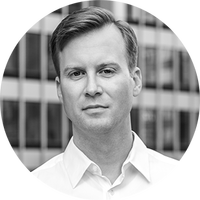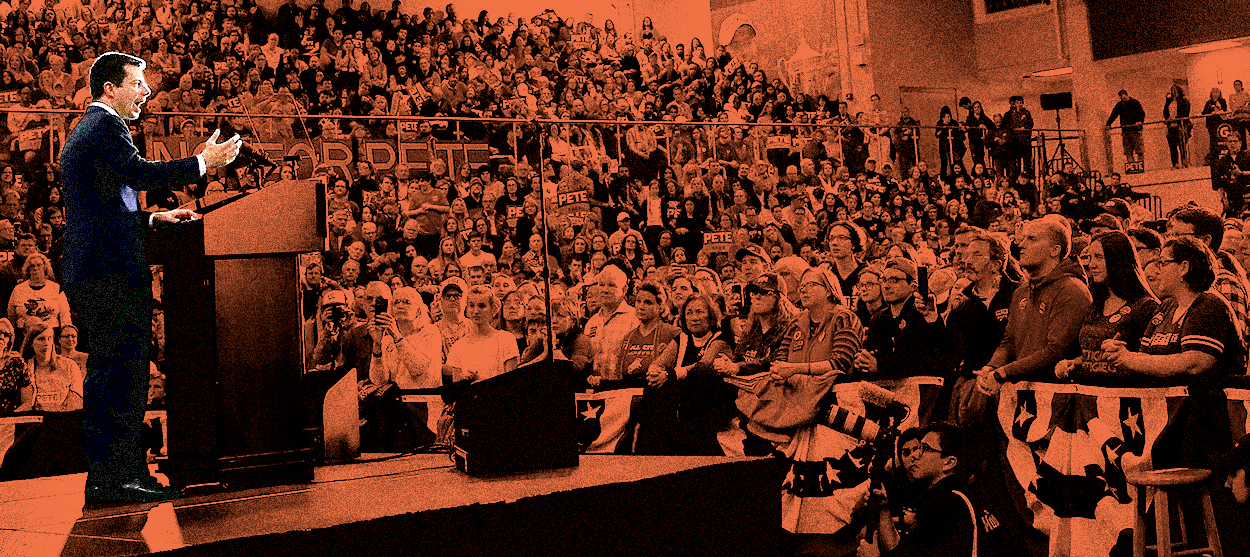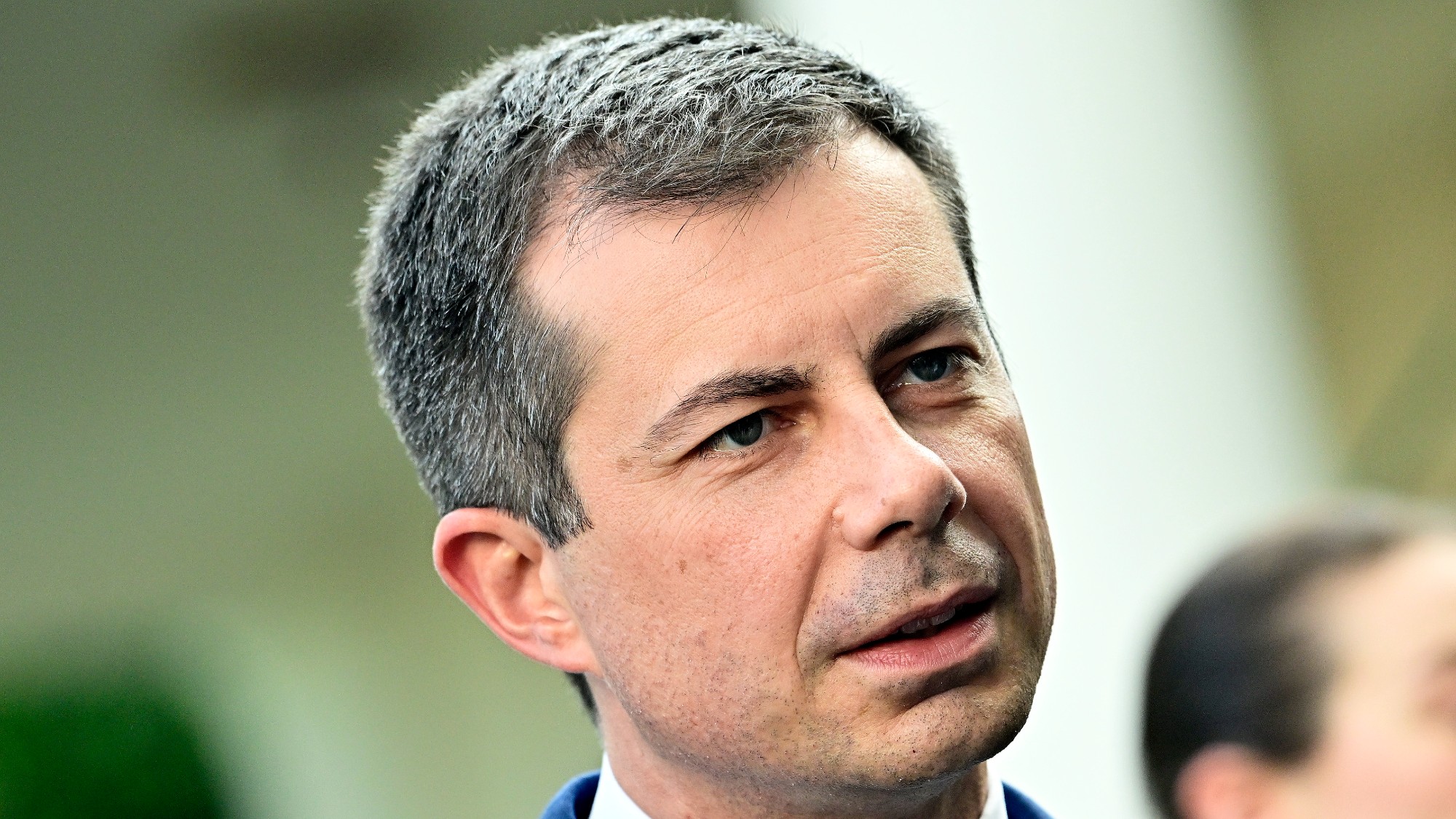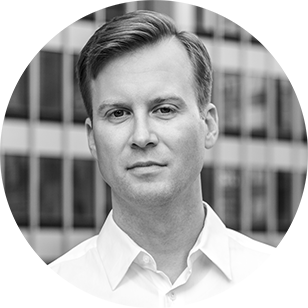The hope and sadness of watching Pete
Pete Buttigieg showed how much has changed for LGBTQ Americans — and how much hasn't


A free daily email with the biggest news stories of the day – and the best features from TheWeek.com
You are now subscribed
Your newsletter sign-up was successful
Given the avalanche of news this week, Pete Buttigieg's exit from the 2020 campaign Sunday night may seem like a distant memory by now. Yet as the Democratic primary settles into a not unpredictable two-person race, it's worth remembering that for the first time ever a gay man became a serious contender, however briefly, for the presidency. As a gay man not much older than Mayor Pete myself, I've also spent time this week painfully reflecting on what it means that Buttigieg endured so many personal attacks while he was busy making history.
From the start, Buttigieg faced legitimate opposition to his candidacy. Back in June, I noted that Buttigieg's political career, especially his poor handling of race relations and law enforcement issues in South Bend, deserved close scrutiny. On the campaign trail, his political ping-ponging from moderate to less-moderate positions, although not an uncommon habit of those running for president, drew outrage from the left. And his youthfulness and brief resume, while regarded by some as anti-establishment features, understandably elicited worries about his inexperience from many more. All of these are valid criticisms of Buttigieg.
Sadly, those reasonable concerns routinely came wrapped in smearing and vicious insults — or were overshadowed by them altogether. Twitter users regularly branded Buttigieg, among other things, as a "robot" and a "lab experiment," either oblivious or indifferent to how LGBTQ persons throughout history so often have been deemed sub-human or worse.
The Week
Escape your echo chamber. Get the facts behind the news, plus analysis from multiple perspectives.

Sign up for The Week's Free Newsletters
From our morning news briefing to a weekly Good News Newsletter, get the best of The Week delivered directly to your inbox.
From our morning news briefing to a weekly Good News Newsletter, get the best of The Week delivered directly to your inbox.
More troublingly, gay writers disparaged Buttigieg as insufficiently gay or not the right kind of gay, whatever that might mean. Last year, The New Republic had to retract Dale Peck's ugly and offensive takedown of Buttigieg that grossly speculated on his sex life before deciding he was "too uptight" to have one. Despite Peck's censure, the snarky mocking of Buttigieg's sexuality and gay expression became commonplace on the left. For many, lobbing personal attacks at Buttigieg — on his looks, his mannerisms, and his best-little-boy-in-the-world-ness, as Jim Downs rightly pinpointed at Slate last November — seemed a daily sport.
Throughout the campaign, watching friends on Facebook or strangers on Twitter blithely toss off cruel comments about Buttigieg felt downright heartbreaking and, frankly — to use a favorite word of the left — triggering. Witnessing all this, I almost came to wish that Trump and the Republicans would set their targets more firmly on Buttigieg, assuming that, if they did, such as the recent reports that Trump told Rush Limbaugh not to apologize for making fun of Buttigieg kissing his husband, people would shape up. I hoped that in the unlikely event Buttigieg became the nominee, Democrats across the board would line up to defend him against the awful things Trump and the GOP would unleash and stop their own harmful comments.
But that was not to be. Instead, on Sunday night as I read the cascade of tweets ordering Buttigieg to now "go away" after he withdrew from the race, a deep, buried pain stirred inside me. There's no reason to see that response to Buttigieg as homophobic, per se. But for those of us who have lived so much of our lives in the shadows and have been unevenly burdened with the difficult work of coming out, it's hard not to hear such words as part of the larger erasure the world insistently makes of us. That many of those who said such things throughout the campaign were Democrats or self-described liberals has only added to the hurt and disappointment. That so many of them were also fellow LGBTQ persons has been particularly troubling.
All of this, it should be said, is not meant to discount the outright and unrelenting misogyny that helped torpedo Elizabeth Warren's campaign nor the racism that hindered Kamala Harris or Cory Booker's prospects, to mention only a few of the Democrats' historically diverse field. But the presence of both — and, especially, the little media attention given to the persistence of misogyny, racism, and homophobia in American politics — provide a damning indictment of today's political coverage while also revealing some of the enduring fault lines of the left.
A free daily email with the biggest news stories of the day – and the best features from TheWeek.com
In the end, I'm not sure I would have voted for Buttigieg. Considering the late April primary date for New York, I assumed he would probably be out of the race when it came time to cast my ballot. And I shared several of the concerns with Mayor Pete's candidacy that others have offered.
Still, the very fact that I might have been able to vote for the first serious gay contender for the presidency — and the incredible evidence that so many Americans did — has been an especially bright spot in these very dark times, even if it has also been diminished by the latent ugliness it exposed. While the Trump administration continues to carry out a vigorously anti-gay agenda almost unnoticed, Buttigieg's presence in this race seemed, if not radical, then possibly restorative.
Most Americans haven't grown up thinking they could never marry the person they love or hearing they will go to hell because they do. But for many of us who have, Pete Buttigieg's run for the White House represented something all-too-familiar: a steadfast hope for a different future tinged by the lingering knowledge that the past is never that far away.
Want more essential commentary and analysis like this delivered straight to your inbox? Sign up for The Week's "Today's best articles" newsletter here.
Neil J. Young is a historian and the author of We Gather Together: The Religious Right and the Problem of Interfaith Politics. He writes frequently on American politics, culture, and religion for publications including The New York Times, The Atlantic, the Los Angeles Times, HuffPost, Vox, and Politico. He co-hosts the history podcast Past Present.
-
 Political cartoons for February 19
Political cartoons for February 19Cartoons Thursday’s political cartoons include a suspicious package, a piece of the cake, and more
-
 The Gallivant: style and charm steps from Camber Sands
The Gallivant: style and charm steps from Camber SandsThe Week Recommends Nestled behind the dunes, this luxury hotel is a great place to hunker down and get cosy
-
 The President’s Cake: ‘sweet tragedy’ about a little girl on a baking mission in Iraq
The President’s Cake: ‘sweet tragedy’ about a little girl on a baking mission in IraqThe Week Recommends Charming debut from Hasan Hadi is filled with ‘vivid characters’
-
 The billionaires’ wealth tax: a catastrophe for California?
The billionaires’ wealth tax: a catastrophe for California?Talking Point Peter Thiel and Larry Page preparing to change state residency
-
 Bari Weiss’ ‘60 Minutes’ scandal is about more than one report
Bari Weiss’ ‘60 Minutes’ scandal is about more than one reportIN THE SPOTLIGHT By blocking an approved segment on a controversial prison holding US deportees in El Salvador, the editor-in-chief of CBS News has become the main story
-
 Has Zohran Mamdani shown the Democrats how to win again?
Has Zohran Mamdani shown the Democrats how to win again?Today’s Big Question New York City mayoral election touted as victory for left-wing populists but moderate centrist wins elsewhere present more complex path for Democratic Party
-
 Millions turn out for anti-Trump ‘No Kings’ rallies
Millions turn out for anti-Trump ‘No Kings’ ralliesSpeed Read An estimated 7 million people participated, 2 million more than at the first ‘No Kings’ protest in June
-
 Ghislaine Maxwell: angling for a Trump pardon
Ghislaine Maxwell: angling for a Trump pardonTalking Point Convicted sex trafficker's testimony could shed new light on president's links to Jeffrey Epstein
-
 The last words and final moments of 40 presidents
The last words and final moments of 40 presidentsThe Explainer Some are eloquent quotes worthy of the holders of the highest office in the nation, and others... aren't
-
 13 potential 2028 presidential candidates for both major parties
13 potential 2028 presidential candidates for both major partiesIn Depth A rare open primary for both parties has a large number of people considering a run for president
-
 The JFK files: the truth at last?
The JFK files: the truth at last?In The Spotlight More than 64,000 previously classified documents relating the 1963 assassination of John F. Kennedy have been released by the Trump administration
